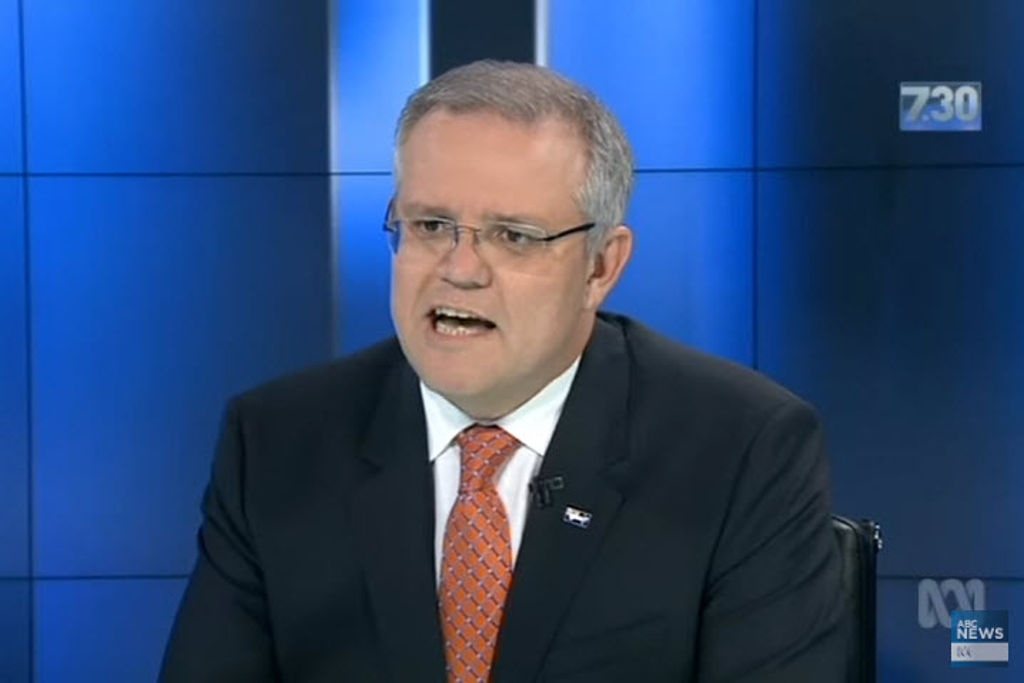Junk Explained: Why The Government’s New Internship Program For Young People Is A Terrible Idea
Hope you like not getting paid minimum wage!

Last night was budget night, and unless you’re nursing the mother of all hangovers from following the rules of our official drinking game (please, never do this), you’re trying to wrap your head around what this new state of affairs means for you and your finances. Unlike the infamous 2014 budget, PM Malcolm Turnbull and Treasurer Scott Morrison have shied away from anything too ambitious, probably because handing down a harsh budget two months before an election opinion polls are predicting you’ll lose is a great way to wind up in the dole queue.
But that’s not to say that there aren’t plenty of nasty surprises lurking in the depths of the budget papers, and one of those is getting a lot of attention ever since Morrison made it a budget centrepiece in his speech to Parliament last night. The newly-announced PaTH program (Prepare, Trial and Hire, yes it’s a dreadful acronym) is the government’s plan to combat youth unemployment, which has been sitting at more than double the national average for some time. But while that’s a great aim, it seems the government hasn’t put a great deal of thought into coming up with something that will actually solve the problem.
–
A PaTH To Underpayment
PaTH is essentially a government-sponsored internship program — it pays businesses to take on young unemployed people for up to 12 weeks at a time in low-paid internships, and gives those businesses lump-sum bonuses of up to $10,000 if they hire their new interns at the end of the trial period. The young jobseekers themselves, who will work between 15 and 25 hours a week at their new internships, will receive $100 a week on top of the Newstart payments they’re already getting. PaTH also includes six-week job training programs so young people can get a better idea of how to enter the workforce.
All that sounds pretty innocuous, but it’s when you dig into the detail that things start getting dodgy. Let’s take a look at one of the examples the government themselves have provided:

In this example, Eva gets an internship — not a job — at a supermarket, and earns an extra $100 a week for 12 weeks of work. Assuming she works at the supermarket for the minimum 15 hours a week, Eva gets paid $6.67 an hour for her 180 hours of work. Assuming she works the maximum 25 hours a week, she gets $4 an hour. That’s a pretty pathetic amount of money for the sort of work required of a young supermarket gopher, especially when Eva’s already getting Newstart without having to work at all. If you were 20, unemployed and on Newstart, would you go stack shelves for an extra $4 each hour? Or would you do literally anything else with your time?
bet our jobless youfs are gonna be mad psyched to do 25 hours at an internship for $100 a week. that sounds engaging
— thomas violence (@thomas_violence) May 3, 2016
–
Stop The Bludgers (Unless They Own A Business)
It’s not just Eva’s behaviour that the government’s misjudged. Morrison’s claimed one of the reasons PaTH is so needed is that too many young people are becoming addicted to welfare. But giving businesses taxpayer money to churn through low-paid interns every 12 weeks could end up seeing those businesses become dependent on cheap, subsidised labour and cash payments from the government. Under PaTH, workplaces will get a $1000 payment from the government for each new intern they take on. Why would a supermarket hire someone to stack shelves or man the counter, and have to pay them award wages and conditions, if they could snap up an intern, pay them peanuts and reap government money instead?
PaTH tries to get around that scenario by offering employers $6,500 lump-sum payments for hiring young jobseekers, but $6,500 doesn’t mean much when you have to pay someone a yearly wage. Under the internship scheme, employers could pick up a new intern every 12 weeks, let them go at the end of their trial having gotten up to 300 hours of free labour, pick up a $1,000 bonus from the government, and start all over again with some new poor sap. Workplaces that rely on cheap young labour — cafes, bars, fast-food restaurants — might be able to replace large sections of their unskilled workforce with bargain-basement interns, all on the government’s dime. Calling that ‘welfare dependency’ is like calling Donald Trump ‘an outspoken character’: it’s technically correct, but it’s woefully insufficient for communicating the seriousness of the situation.

His chin, it’s…mesmerising.
–
Pay Me What You Owe Me: Why Unskilled Work Deserves Respect
There’s a deeper reason why PaTH, and the mindset behind it, is so flawed: it devalues the kind of unskilled, entry-level work that gets young people into the workforce in the first place. Work over a fry cooker or the front counter of a takeaway shop isn’t glamorous or fun, but it’s work. It’s labour that makes money for the business you’re working for, and as such it deserves to be properly compensated. Reducing it to the lowly status of an internship — an unstable, short-term, miserably paid arrangement in which the employer holds even more power over the employee than they would otherwise — is a way of saying that young people aren’t worth treating with the same dignity and basic respect as older, established workers, purely because of their age and the short amount of time they’ve been working.
In an age where low-skilled work is routinely exploited, underpaid, relegated to dodgy ‘contract’ status or otherwise demeaned, the government had a chance with this budget to tell businesses in no uncertain terms that the days of taking young workers for a ride are over. Instead, they’ve enshrined that mentality as a good and necessary business practice.